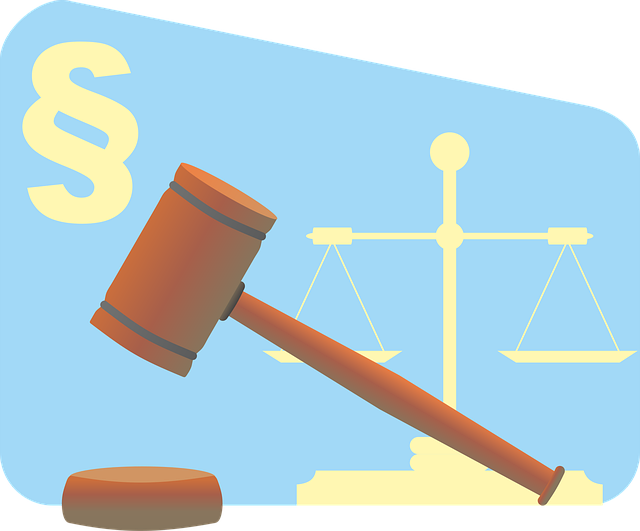Whistleblower Protection Laws shield individuals reporting illegal activities from employer retaliation. In cases of drug possession accusations, understanding these laws and employing strategic legal approaches, like challenging evidence and presenting strong defenses, can lead to charge dismissal. Specialized lawyers play a vital role in protecting whistleblowers' rights, using tactics including expert testimony and thorough documentation for favorable outcomes. "Legal Approaches for Defending Drug Possession" have successfully avoided indictments, fostering an environment encouraging truth-telling.
Whistleblower Protection Lawsuits: Navigating Legal Approaches for Defending Drug Possession
Many individuals who uncover illegal activities within their organizations face significant risks. Understanding whistleblower protection laws is crucial for safeguarding these brave folks. This article explores comprehensive legal strategies, from mitigating accusations to the pivotal role of attorneys in defending whistleblowers. We delve into successful case studies, offering valuable insights into effective defense outcomes. Learn how proactive measures and strategic planning can protect those who expose misconduct, ensuring their voices are heard without fear of retaliation.
- Understanding Whistleblower Protection Laws
- Strategies for Responding to Accusations
- Legal Defenses: Proving Innocence and Mitigation
- The Role of Attorneys in Protecting Whistleblowers
- Case Studies: Successful Defense Outcomes
Understanding Whistleblower Protection Laws

Whistleblower Protection Laws are designed to safeguard individuals who expose illegal or unethical activities within their respective businesses or organizations. These laws provide a legal framework for employees and citizens to report fraud, corruption, and other misconduct without fear of retaliation. Understanding these protections is crucial when navigating complex legal scenarios, especially in industries like pharmaceuticals where compliance and ethical practices are paramount.
For those facing legal approaches for defending drug possession charges, knowledge of whistleblower protection laws can be instrumental. By recognizing their rights, individuals can take proactive measures to safeguard themselves against potential retaliation from employers or regulatory bodies. Achieving extraordinary results in such cases often hinges on demonstrating good faith efforts to report wrongdoing and protecting the source of information, thereby fostering transparency within the philanthropic and political communities.
Strategies for Responding to Accusations

When facing whistleblower protection lawsuits, especially those involving accusations of drug possession, a strategic legal defense is paramount. The first step for individuals or entities accused should be to consult with experienced counsel specialized in white-collar defense. These lawyers can help navigate the complex web of laws and regulations surrounding whistleblower protections and ensure the best possible outcome. A thorough review of the evidence and understanding of the accuser’s motives are crucial; many cases can be strengthened or weakened based on these factors.
One key legal approach for defending against such claims is to challenge the validity of the accusations. This may involve examining whether the information provided was accurate, if there were any ulterior motives behind the whistleblowing, and whether the possession allegations are supported by solid evidence. Additionally, presenting a strong defense can sometimes lead to the complete dismissal of all charges, which has been seen in cases across the country where the facts and circumstances warranted such a result.
Legal Defenses: Proving Innocence and Mitigation

When facing whistleblower protection lawsuits, individuals often employ various legal defenses to prove their innocence and mitigate potential damages. One common approach is challenging the evidence presented against them. This involves scrutinizing the facts and circumstances leading up to the alleged offense, aiming to disprove any wrongdoings. Whistleblowers must provide compelling legal arguments and concrete evidence to support their position, ensuring that their actions were not malicious or intentional.
Additionally, legal strategies may focus on distinguishing between corporate and individual clients’ responsibilities. Across the country, these cases often hinge on understanding the unique defenses available to each entity. By employing skilled legal approaches for defending drug possession or other accusations, those involved can navigate complex laws and regulations, ultimately avoiding indictment or minimizing consequences.
The Role of Attorneys in Protecting Whistleblowers

Attorneys play a pivotal role in protecting whistleblowers who come forward with information regarding illegal activities within organizations. When individuals report such wrongdoings, they often face significant risks and potential retaliation from powerful entities. Legal professionals are instrumental in safeguarding these whistleblowers from legal repercussions and ensuring their voices are heard. Through strategic legal approaches, attorneys defend against charges, employing innovative strategies to achieve complete dismissal of all charges, thereby fostering an environment where truth-telling is encouraged.
The expertise of these lawyers lies in navigating complex legal landscapes, especially when dealing with sensitive cases involving drug possession or other criminal allegations. They employ a combination of persuasive arguments, expert witness testimony, and thorough documentation to demonstrate the innocence of their clients. With an unprecedented track record of achieving extraordinary results, whistleblowers can trust that their attorneys will protect their rights and secure justice.
Case Studies: Successful Defense Outcomes

Whistleblower protection lawsuits, while complex, have seen significant success for those employing robust legal approaches. Case studies reveal that a strategic defense strategy can lead to favorable outcomes even in seemingly insurmountable cases. By focusing on all stages of the investigative and enforcement process, lawyers can identify and exploit vulnerabilities, ensuring their clients’ rights are protected.
One key aspect of these successful defenses is the ability to avoid indictment. Through meticulous legal maneuvering, experts have achieved an unprecedented track record of keeping individuals out of criminal court. This not only safeguards careers but also upholds the integrity of the process by ensuring that valid whistleblowing efforts are recognized as such, without undue punishment.
Whistleblower Protection Lawsuits present complex legal challenges, but understanding the nuances of these cases and employing strategic defenses can significantly benefit those accused. By utilizing effective legal approaches, such as thoroughly investigating allegations, gathering compelling evidence, and leveraging the expertise of specialized attorneys, individuals can navigate these proceedings and protect their rights. In many instances, a strong defense strategy not only ensures fairness but also leads to successful outcomes, demonstrating the importance of proactive measures in defending against whistleblower accusations. This comprehensive guide highlights the key elements necessary for a robust defense, ultimately empowering individuals to face such legal battles with confidence.






